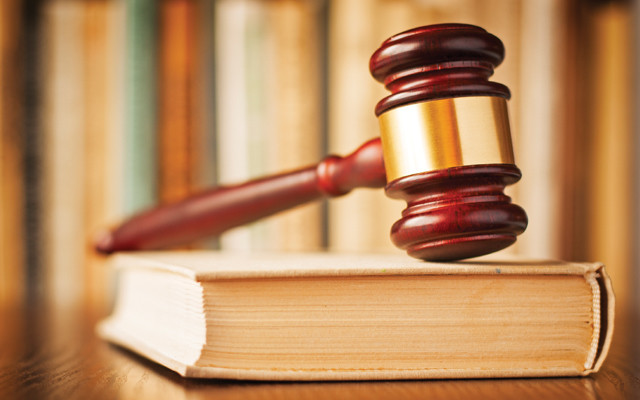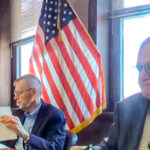PORTLAND, Maine — An attorney for a Houlton man convicted of a theft charge argued in an appeal before the Maine Supreme Judicial Court that the trial court erred when it declined to declare a mistrial.
Rickey Caron was convicted of theft by receiving stolen property in October 2018. He was sentenced to 48 hours in jail and ordered to pay $40 restitution four months later.
He was represented at his appeal Monday by Presque Isle attorney John Tebbetts, who also was Caron’s trial lawyer. The trial was held before Aroostook County Superior Court Justice Harold Stewart II, with former Assistant District Attorney Kurt Kafferlin representing the state. James G. Mitchell Jr., the current assistant district attorney, represented the state Monday before the Law Court.
According to court documents, the case centered around two saws that were being sold at a former Houlton consignment store. The saws owner spotted the saws and believed they might have been stolen from her. She confronted the business owner, who said he had purchased them from Caron.
At trial, a witness testified he had once owned the saws but gave them to Caron three years prior. Caron testified to the same events.
Tebbetts said in his court brief that when Caron was being cross-examined, Kafferlin asked him if he had been convicted for attempted theft. Tebbetts said that Caron answered before he could object, prompting him to ask for a mistrial. Stewart ultimately declined to declare one.
Tebbetts told Justice Ellen Gorman that he was aware of his client’s prior conviction, and she asked why he hadn’t filed a legal motion to keep it from being admitted into evidence.
Tebbetts acknowledged that he should have, but he said he feels the state should make known whether they plan to bring up a prior conviction.
Justice Leigh I. Saufley also noted that Tebbetts didn’t request a mistrial immediately. He requested one orally and also asked the judge to instruct the jury regarding the prejudicial effect of tainted evidence or erroneous testimony.
He did not file a written notice for a mistrial until January 2019.
“Sometimes I am not as precise in my wording, especially in a moment of shock when I wasn’t expecting that to come up,” he said.
According to court documents, Stewart ruled that Kafferlin was allowed to ask about the prior conviction for attempted theft, but if Tebbetts had filed a motion to keep that conviction out, he would have granted it.
After Tebbetts noted that issues such as prior convictions and their admissibility at trial are not always decided at meetings between the attorneys and the judge, Saufley said that “maybe that is the issue.”
Mitchell also told the Law Court that there is no rule that you have to bring such evidence up beforehand. During the trial, Kafferlin argued that he was allowed to mention the attempted theft charge under rule of evidence.
Mitchell said he has witnessed such evidence come up at pre-trial and sidebar conferences before, but also after an attorney has already asked the question and been made to go to sidebar by the judge. That is the action Kafferlin took during the trial.
“Do you agree that the latter is not a good practice?” Saufley asked.
Mitchell agreed.
“I believe the better practice is to use one of the other two options,” he said.
The Law Court gave no timeline for making a decision.





